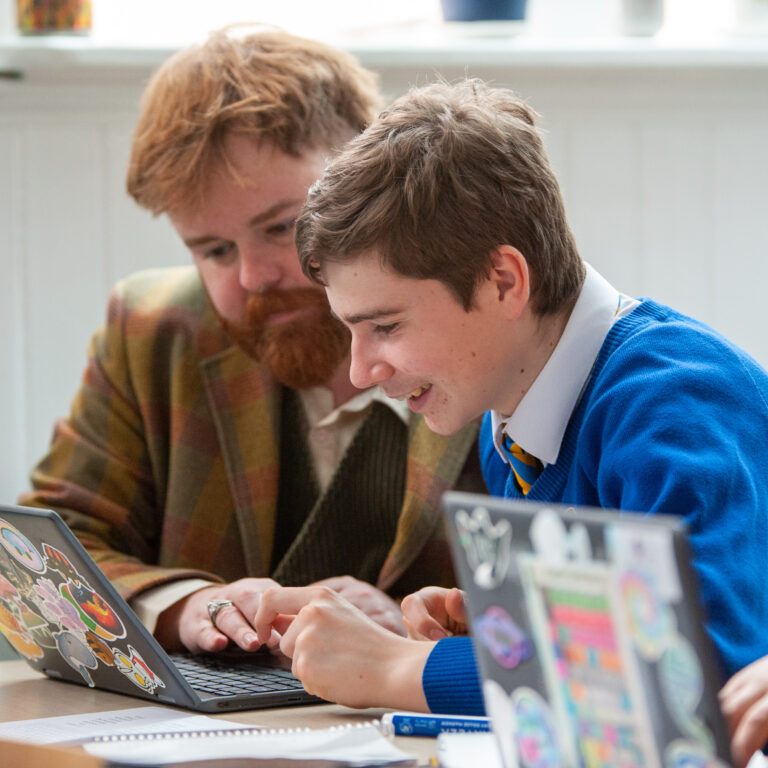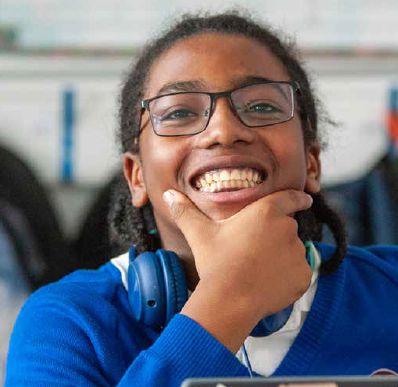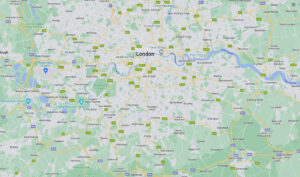|
Autumn 1
|
Autumn 2
|
Spring 1
|
Spring 2
|
Summer 1
|
Summer 2
|
English E5
|
Letter formation, word reading, speaking confidence |
Can punctuate a simple sentence
Can read and understand a short sentence |
Can follow and give basic instructions
Begins communicating clearly for purpose |
Can identify main information
Expresses opinions and feelings simply |
Communicates clearly in writing and speech
Understands short passages independently |
Consistent sentence writing
Reading comprehension
Real-life communication skills |
English E6
|
Writing fluency, sentence construction, reading comprehension |
Can read illustrated texts
Uses adjectives and simple sentence variety |
Can organise and link ideas
Understands structure of short texts |
Understands main ideas in explanation texts
Writes with some cohesion and purpose |
Communicates clearly
Writes with increasing independence |
independent reading and writing
Clear and relevant spoken communication |
English E7
|
Sentence structure, reading fluency, clarity of ideas |
Can write connected sentences
Extracts clear details from varied texts |
Understands info structure
Speaks clearly with purpose |
Writes for clarity and logical sequence
Understands different text purposes |
Confidently reads and interprets structured texts
Can write with purpose and format awareness |
Communicates clearly in writing and speech
Reads with understanding and purpose |
English E8
|
Spelling, punctuation, sentence structure, listening and speaking confidence
Comprehension and fluency |
Ability to structure paragraphs, use conjunctions, identify key text features |
Grammar use, reading for purpose, adapting format for audience
Speaking clarity |
Self-assessment and peer feedback on clarity, cohesion, tone, and register |
Writing to specification, structured reading analysis, debate prep |
Complete functional tasks across all areas
Level 1 assessments |
English E9
|
Spelling, punctuation, sentence structure, listening and speaking confidence
Comprehension and fluency |
Ability to structure paragraphs, use conjunctions, identify key text features |
Grammar use, reading for purpose, adapting format for audience
Speaking clarity |
Self-assessment and peer feedback on clarity, cohesion, tone, and register |
Writing to specification, structured reading analysis, debate prep |
Complete functional tasks across all areas;
Level 1 assessments |
Maths M5
|
Place value |
Number: Addition and subtraction |
Geometry: 2d and 3d shapes |
Number: partitioning and aggregation |
Measure: Time |
Measure: Length and weight
Exam revision |
Maths M6
|
Place value |
Multiplication and division |
Fractions and decimals
Money |
Time
2d and 3d shapes |
Measure: position and directions |
Handling data
Exam revision |
Maths M7
|
Place value |
Fractions and decimals |
NumberAlgebra |
Decimals
Measure: Perimeter and area |
Handling data
Measure: Angles |
Time
Exam revision |
Maths M8
|
Fractions, decimals and percentages |
Measure: angles and perimeter and area
Exam revision |
Ratio and proportion |
Measure: compound shapes; scale drawings |
Measure: 2d and 3d shapes
Probability |
Handling data
Exam revision |
Maths M9
|
Fractions, decimals |
Percentage change,
Compound interest |
Ratio, direct and indirect proportion |
Compound measure:
Speed, density, rates of pay |
Measure; area, volume
Coordinate
Geometry |
Handling data
Probability
Exam revision |
Science
|
Teamwork and quality control |
Teamwork and quality control |
Teamwork and quality control |
Researching a topic and plan and carry out an experiment |
Researching a topic and plan and carry out an experiment |
Researching a topic and plan and carry out an experiment |
Humanities
|
Crime and punishment |
Crime and punishment |
Earthquakes and volcanoes |
Earthquakes and volcanoes |
Windrush |
Windrush |
Creative Arts
|
Drama
Pantomime & stock characters
Theory |
Drama
Dickens’ A Christmas Carol
Skill focus: Group devised work |
Art
Key art elements: Natural forms |
Art
The Bird project
Abbey Diamond |
Music
Music for storytelling |
Music
To learn and perform a song for the summer musical |
NCFE L1 in Sport
|
Unit 1: Taking part in sport |
Unit 1: Taking part in sport |
Unit 7: Health & nutrition |
Unit 7: Health & nutrition |
Unit 9: Assisting at a sport event |
Unit 9: Assisting at a sport event |
BTEC Hospitality
|
Unit 6: Serving food & drink |
Unit 6: Serving food & drink |
Unit 9: Contribute to running a hospitality event
Unit 3: Working with others |
Unit 9: Contribute to running a hospitality event
Unit 3: Working with others |
Unit 7: Exploring local visitor attractions |
Unit 7: Exploring local visitor attractions |
BTEC Media
|
Unit 11: Making an audio recording |
Unit 11: Making an audio recording |
Unit 7: Producing an advert |
Unit 7: Producing an advert |
Unit 1: Being organised |
Unit 1: Being organised |
BTEC Art & Design
|
Unit 5: Create a 2D art image |
Unit 5: Create a 2D art image |
Unit 11: Using clay |
Unit 11: Using clay |
Unit 9: Planning and making an exhibition |
Unit 9: Planning and making an exhibition |
BTEC Performing Arts (music)
|
Unit 5: Using music as a stimulus |
Unit 5: Using music as a stimulus |
Unit 9: Performing a piece of music |
Unit 9: Performing a piece of music |
Unit 11: Preparing for performance |
Unit 11: Preparing for performance |
BTEC Performing Arts (performance)
|
Unit 8: Performing a dance routine |
Unit 8: Performing a dance routine |
Unit 12: Rehearsing for performance |
Unit 12: Rehearsing for performance |
Unit 10: Acting in a performance
Unit 1: Being organised |
Unit 10: Acting in a performance
Unit 1: Being Organised |
Duke of Edinburgh
|
Introduction to DofE, volunteering |
Volunteering |
Navigation and map reading |
Practical map skills |
Camping & cooking skills |
Expedition preparation |
Gardening (ASDAN)
|
Module 1: Planting in the garden |
Module 1: Planting in the garden |
Module 2: Growing food in the allotment |
Module 2: Growing food in the allotment |
Module 4: Wildlife in the garden |
Module 4: Wildlife in the garden |
PE
|
Football & individual games |
Handball |
Health & fitness |
Tchoukball |
Cricket |
Rounders & athletics |
Food Tech
|
Kitchen & hygiene safety |
World cuisines |
Food production and processing |
Assessment |
Food commodities |
Nutritional values |
PSHE
|
Employment rights |
Protecting and maintaining wellbeing |
Online safety |
Physical health |
Sex and relationship education |
Sex and relationship education |
Employability
|
Teamwork |
Teamwork, being organised |
Being organised, enterprise |
Being organised, enterprise |
Presentation skills |
Presentation skills |
Independence
|
Zones curriculum |
Housekeeping skills: Wheel of Independence |
Self care: Level based on class baseline (likely 3) |
Time management skills: Wheel of Independence |
Leisure skills: Wheel of Independence |
Laundry skills: Wheel of Independence |
Communication
|
Self-awareness, self-esteem & emotions Module 3 (emotions and behaviour)
Awareness of others |
Emotions Module 4 (triggers for emotions) |
Conversation Skills: The way we talk
How I communicate |
Friendship: Maintaining a friendship |
Practical communication skills (SMiLE Therapy) |
Practical communication skills (SMiLE Therapy) |



